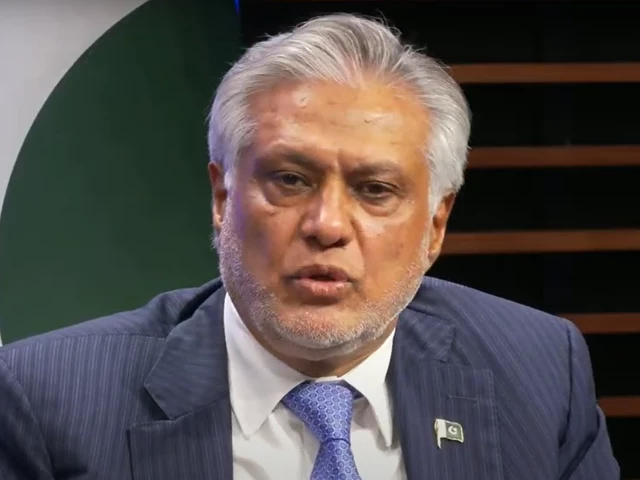“It’s not just about assembling devices, but also about future exports, new jobs and a stronger digital economy”
Deputy Prime Minister and Minister of Foreign Affairs, Senator Mohammad Ishaq Dar. Photo: SCREENSHOT
Google has begun local assembly of Chromebooks in Pakistan, a development the government says will boost digital hardware manufacturing, create jobs and strengthen the country’s technology supply chain.
Speaking at the launch event in Islamabad on Tuesday, Deputy Prime Minister and Foreign Minister Ishaq Dar said the initiative marked “an industrial milestone” as Pakistan deepens its transition from being a technology consumer to a technology producer. “It’s not just about assembling devices, it’s also about future exports, new jobs and a stronger digital economy,” he added.
Dar said Pakistan’s digital transformation accelerated after the deployment of 4G in 2014, calling it the foundation of services and startups thriving today. “If we hadn’t introduced 4G when we did, none of these innovations would have happened,” he said.
He said that under a strategic memorandum of understanding, Pakistan and Google will collaborate to provide professional training to 100,000 developers across the country and advance localized AI-based solutions, such as Android services for public safety.
The minister highlighted that Google’s move to establish a local office, as well as an assembly line, would bring the tech giant closer to Pakistani developers, startups and entrepreneurs, enabling direct collaboration and better access to global platforms.
As part of this partnership, Google will also offer 100,000 career certificates to equip young people with market-relevant digital skills, while supporting game studios and local AI-based solutions.
Dar said the move comes at a time when Pakistan is trying to regain its economic momentum and restore the confidence of global investors. “In 2017, Pakistan was considered unstable. Today, we are among the top 25 economies in the world,” he noted. “Our ambition is to accelerate growth so that Pakistan can soon join the G20.”
The government believes that localizing affordable digital tools, particularly for education, will help close access gaps and support learning innovation nationally.
Dar described Google’s presence as a “powerful endorsement” of Pakistan’s digital potential and a signal to international investors that the country’s technology sector is entering a new phase of growth.
In her speech, Minister of Information Technology Shaza Fatima described the launch of the Chromebook assembly line as a transformative step bringing together technology, manufacturing and education. She reaffirmed the Government’s commitment to rapidly advancing the digital journey.




